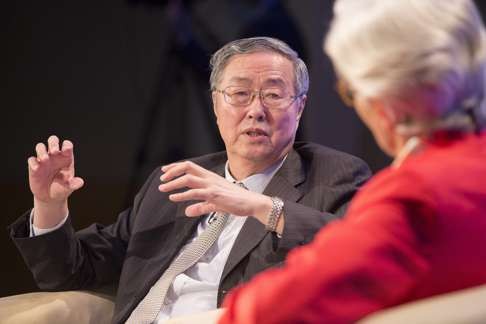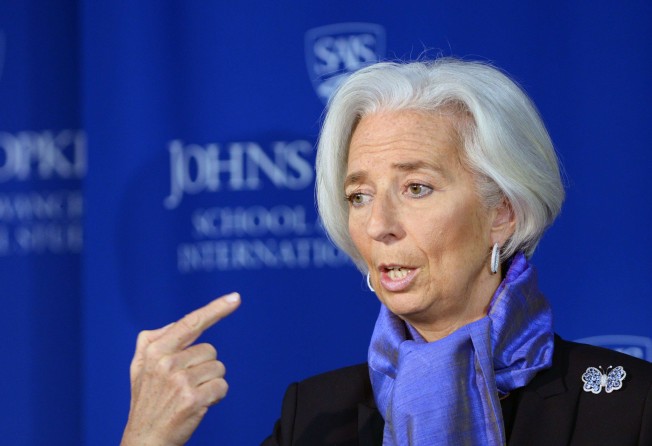
Political disunion in Europe may derail plans for coordinated effort to shore up growth, analysts say

The calls at the G20 from Xi Jinping and IMF chief Christine Lagarde for coordinated global action to boost growth come at a time when economists are refocusing on the problems the Euro zone is having in kickstarting its sluggish economy. One concern is that European policymakers face challenges which are political as much as economic, leaving them with fewer options than their Chinese counterparts.
“Political risk in advanced countries is becoming the key macro-economic risk for us,” Fitch Ratings chief economist Brian Coulton said.
In some instances, gaining the lasting consensus necessary for a functioning democratic government has proven difficult.
“The fragmentation and polarisation that we see in virtually every country in Europe …is going to make it more difficult to govern. If you look at Spain for example, it does not have a government, and is moving towards its third election in a year,” Fitch Ratings global head of sovereigns James McCormack said.

In addition as the US presidential election in November, next year will also see voters heading to the polls in general elections in France, Germany and the Netherlands. Italy will also hold a nationwide referendum on economic reforms later this year.
“That electoral calendar could complicate and be complicated by the Brexit process,” McCormack said.
“The political issues that were caught up in the vote for Brexit could affect Eurozone investment, which has been very week, and if that happens that becomes a much bigger issue for global growth [than Brexit],” Coulton said.
In July, the IMF announced that it would lower its expectation for global GDP growth by 0.1 percentage point. More recently Christine Lagarde indicated that the IMF would further lower its expectations for global growth for this year.
In contrast, in China economic indicators at least in the immediate future have turned more positive. “Last summer there was a significant risk that the economic situation would deteriorate, but from where we are now, it seems pretty clear that the easing policies in late 2014 and through 2015 did gain some traction in the economy, and we think China has the capacity to avoid a sharp deceleration in growth from here,”Coulton said.
As such, when Xi Jinping urged G20 leaders to cooperate to boost global growth, he was able to speak from a position with a degree of strength.
“Eight years ago … the G20 pulled the world’s economy away from a cliff to the track of stability and recovery. Eight years later, the world economy is again at a critical moment,” Xi said in his opening address to the G20 in Hangzhou on September 4.
“I think Xi was smart to put global growth on the agenda, and as China is a big country that has done a stimulus package before, it makes sense for him to say maybe we should revisit the stimulus idea,”
global trade credit insurance firm Euler Hermes’ chief economist Ludovic Subran said.
“The problem is that infrastructure spending is ‘so 2015’. It was suggested by Turkey last year, and we won’t solve everything with infrastructure, though certainly it will help in some places.”
One of those is Southeast Asia, where the potential for stimulus is associated with China’s One Belt One Road initiative.
“I have great hopes for the One Belt One Road, and if anything has a chance going to bring growth to the region I think that is it,” DBS chief economist David Carbon said.
“That said it is not going to happen overnight, and if it is going to happen, countries in Southeast Asia will have to get rid of their current account surplus to fund it. The idea that the Asian Infrastructure Investment Bank is going to fund this is patently absurd. Its US$100 billion in capital is just a drop in the ocean of what we’ll need,” Carbon added.
Such an option is not on the table for European countries however. For McCormack, as he attempts to rate the health of global economies, fiscal stimulus could lead to ratings downgrades for the bonds of European countries.
“From a ratings perspective, large fiscal stimulus could give us some cause for concern,” he said. “Government debt levels in many advanced economies remain high, and several of the higher rated sovereigns’ ratings are premised on debt to GDP levels coming down from here. So we need to think clearly about the new debt dynamics that countries and sovereigns will be facing, and see what the effect on growth is.
Carbon said he is sceptical about the need for fiscal stimulus. He argues that as population growth in advanced economies is slowing, and the working age population in some is even starting to fall, GDP growth per capita is, in fact, near its full potential.
“This means that further monetary stimulus is futile, and we should not expect short run cyclical policies to cure today’s growth problems. If we have them, which I’m not sure we do.”